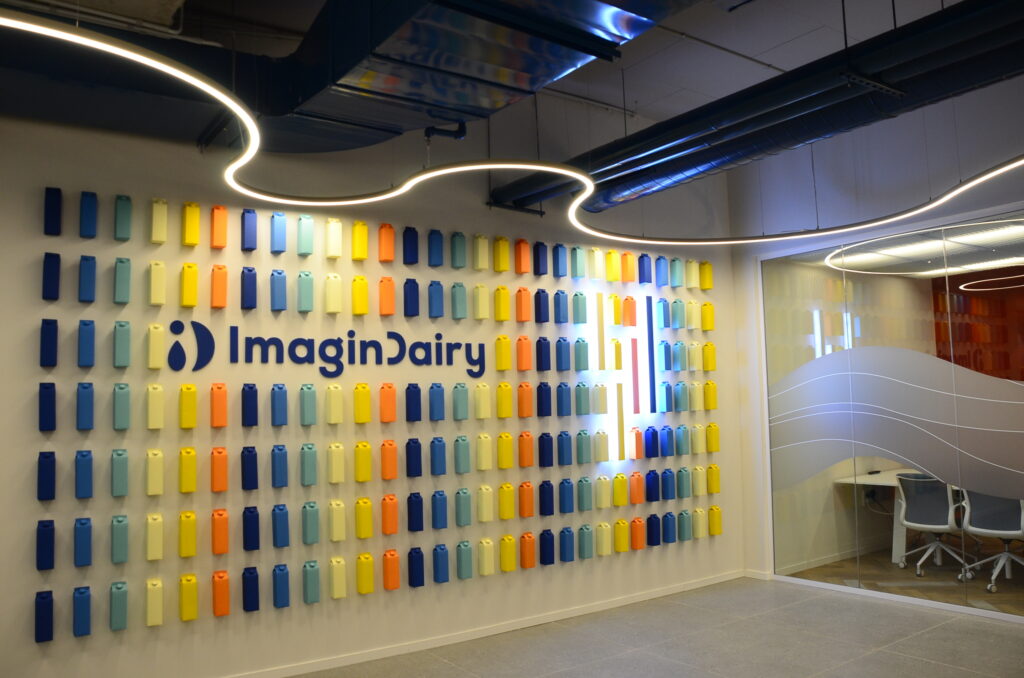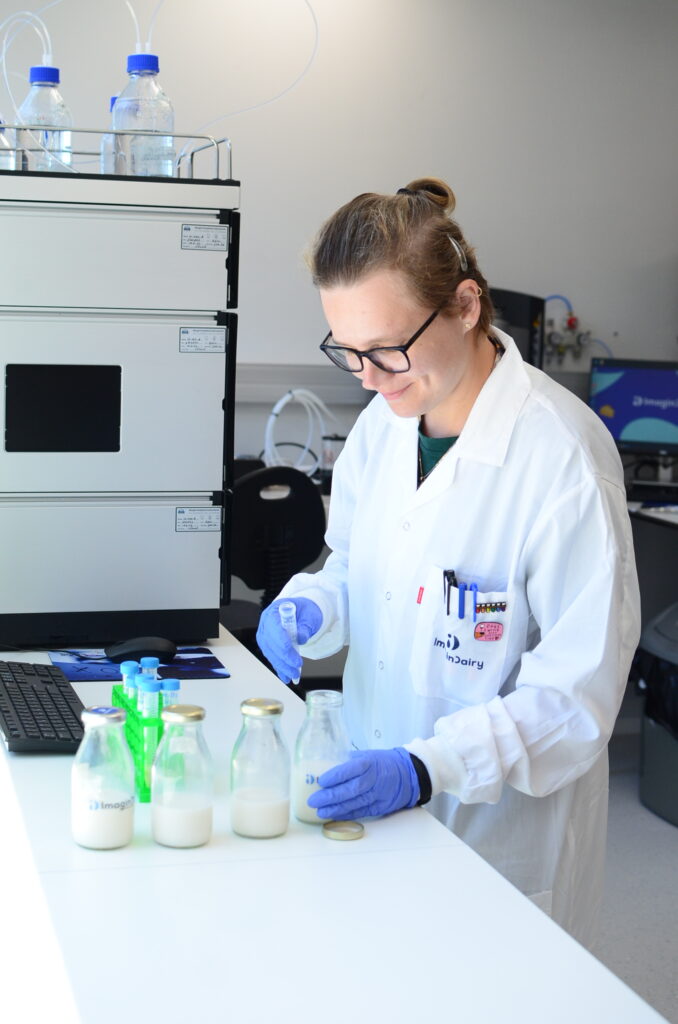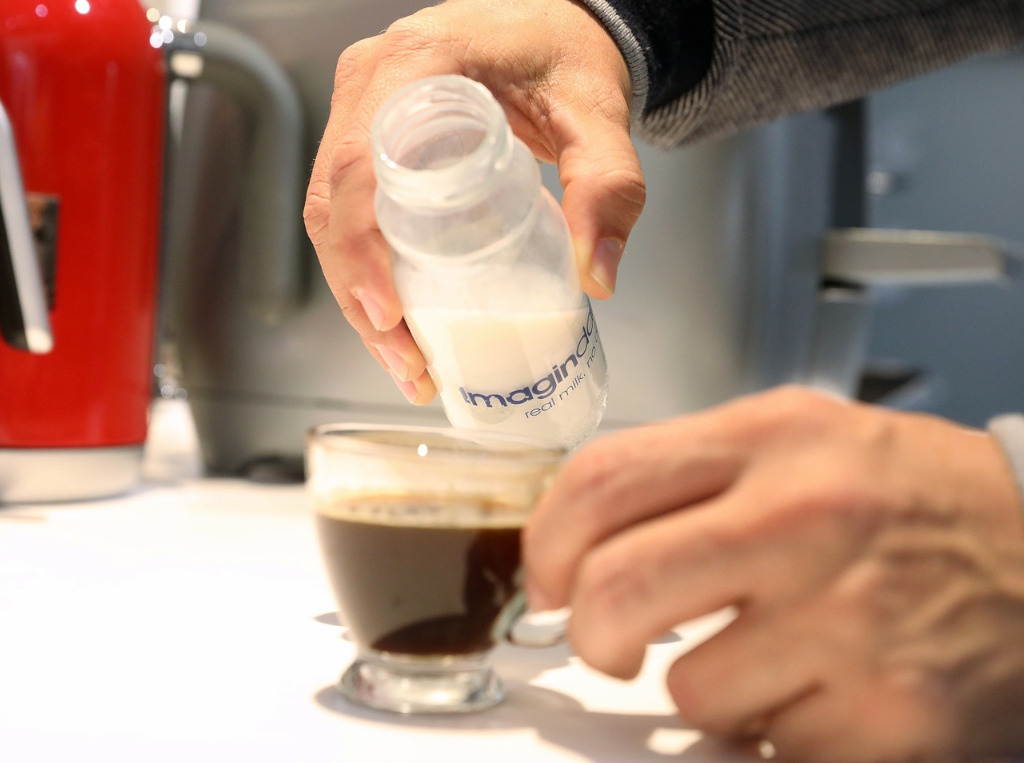Imagindairy Becomes the Third Precision Fermentation Dairy Company to Earn US GRAS Status, Opens New Headquarters
3 Mins Read
Israeli alt-dairy maker Imagindairy has obtained self-affirmed GRAS (generally recognised as safe) status in the US, becoming only the third precision fermentation company to do so. Now, with its new headquarters, it aims to accelerate production in its journey towards commercialisation.
Following in the footsteps of California-based Perfect Day and fellow Israeli brand Remilk, Imagindairy’s animal-free whey protein has met the FDA’s safety requirements. The GRAS status means the ingredient is safe to be used in food and beverage products and provides a regulatory ‘green light’ for manufacturers to partner with Imagindairy.
Self-affirmed GRAS status doesn’t mandate companies to submit documents for FDA review and can be attained independently if approved by a scientific panel. Imaginary has also notified the FDA about its ingredient, and is currently awaiting approval (in the form of a ‘No Questions’ letter) according to FDA records seen by Green Queen.
New headquarters to accelerate production

The startup also announced the opening of its new custom-designed headquarters near Haifa, Israel to support its next phase of growth. It features state-of-the-art laboratories for research and development, a culinary and ingredient applications testing kitchen, and a fully operational pilot line that allows for testing in conditions similar to those in large-scale fermentation processes.
Imagindairy says its novel ingredient underwent “significant internal and external review and safety testing”, and confirms that the FDA has been notified of the ingredient’s self-affirmed GRAS status. The company is now free to partner with food brands to create precision fermented alternatives of conventional dairy products like milk, cream cheese and yoghurt with its whey across the US. Perfect Day has already seen its animal-free whey protein used in alt-dairy products by many companies, including Nestlé, Mars, Oodaalolly, Coolhaus and Modern Kitchen.
Launched in 2021, Imagindairy uses a microflora-based production method that it describes as “inspired by nature” and feeds microorganisms that are 20 times more efficient than cows at converting feed into proteins. It says that this proprietary tech leverages artificial intelligence, which integrates both advanced computational biology and molecular biology technologies. This will enable large-scale production at costs that are in line with conventional dairy.
Increased investment in precision fermented dairy

In May, French dairy giant Danone purchased a minority stake in Imagindairy, which has raised $28M in total seed funding since its launch. The startup says its manufacturing process can be integrated into existing dairy processing facilities, which shortens the time to market and enables high production yields.
The news comes amidst multiple strides by the burgeoning precision fermentation sector. There are about 30 companies working in this segment globally, with total investment nearing $4B. US company New Culture just announced that it has successfully scaled up its casein production process to manufacturing levels.
And in March, a survey found that 77% of Americans are willing to try precision fermentation products once they understand its benefits. Similarly, a landmark study in May revealed that 79% of British dairy consumers are seeking cheese produced from microbes.
Imagindairy is a founding member of the Precision Fermentation Alliance, which was established in February by nine leaders in the space to champion microbial fermentation as a solution for a sustainable food system. The company is also part of Food Federation Europe, a coalition that aims to advance regulatory approval for precision fermentation companies.
This story was updated to include Imagindairy’s FDA GRAS notification filing.




